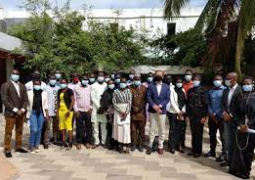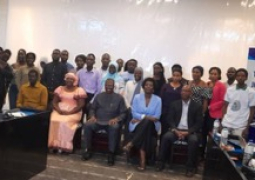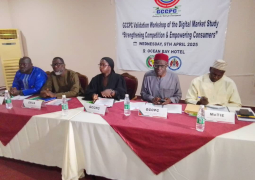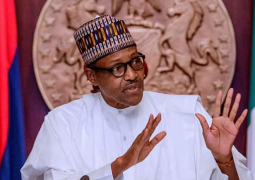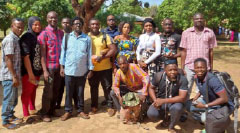
The participants from different media houses were availed the chance to learn issues regarding climate change resilience, deforestation, the role of the media in biodiversity and reporting perspective among others.
Sambujang Dampha, the communications officer for EbA, expressed delight and thanked the participants for the great gesture while urging them to report more on climate change. He added that their target beneficiaries are the Lower, Central, and Upper River regions.
“We have a partnership with the community radios to raise awareness and mainstream climate change consideration in the public discussions. We targeted you in order to relate the message of climate change at the community level.”
He reiterated that community radios play an important role using different means of communication, adding that climate change is a national threat and should be discussed at all levels.
He said the level of vulnerability the country faces in climate change requires people to adopt the rules appropriately so that the impact will not be serious.
“The training is intended to support journalists with the needed capacity in order to report better and improve in disseminating climate change messages.”
Dr. Kebba Sima, the monitoring and evaluation officer explained that the project is to support communities to fight the effect of climate change. He said most of the people that suffer from climate change are the families living in rural areas, particularly women and children.
“The best way to address the suffering as a result of climate change is to provide them the knowledge and the technics to adopt. By way of adopting it, people have to be sensitised of what needs to be done to address the challenges.”
He added that the role of the media is to sensitise and educate people about the measures developed to fight climate change.
Pa Modou Faal, resource person for the training, said the training is timely and important because the community radios have a crucial role to play in addressing issues of climate change.
“Climate change should be everybody’s business and the importance of the training is how journalists will package their information. The training is to equip journalists on how to change the community perspective on climate change.”
Suma Jadama, one of the resource persons also emphasised that climate change is one of the devastating disasters that are hitting the entire biodiversity and functionality of the ecosystem globally. He added that journalists don’t know everything but they should know little about everything.
“Information, dissemination and management is very crucial and important. Some of the issues relating to climate change are usually packaged in technical jargon but as journalists, we are expected to better repackage the complicated technical jargon into a simplistic form.”
Mr. Jadama buttressed that journalists would be confronted by climate deniers but advised not to give them too much time. He called on journalists to focus on people whose lives and livelihoods are always threatened by the devastating impact of climate change.


